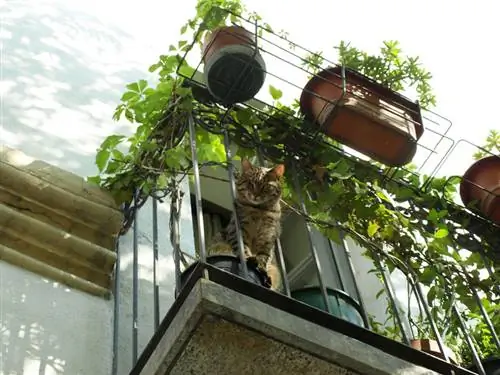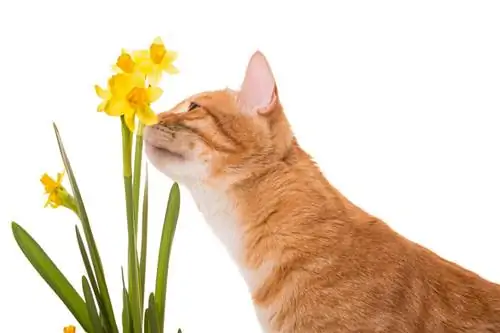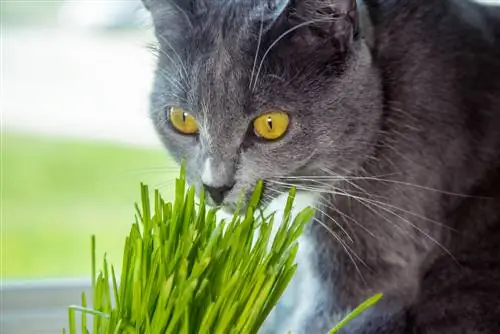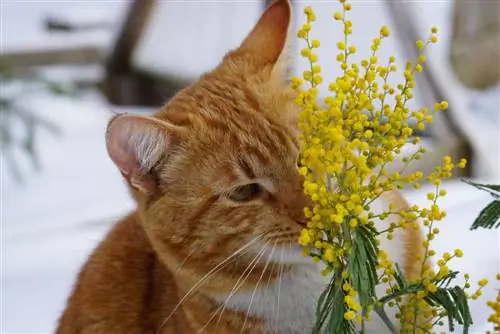- Author admin leonars@hobbygardeners.com.
- Public 2023-12-16 16:46.
- Last modified 2025-01-23 11:20.
Passiflora with its wide variety of shapes and colors is a popular house and ornamental plant. It enchants with beautiful, large flowers and strong growth. As beautiful as the passion flower is, it can be dangerous for small animals.
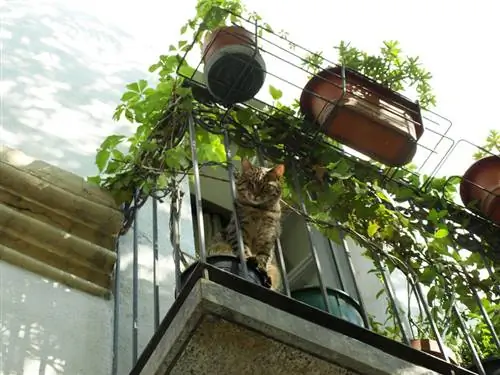
Is passionflower poisonous to cats?
Passionflower is poisonous to cats as it can be fatal to small animals such as cats or rabbits due to the high hydrogen cyanide content in leaves, shoots and unripe fruits. Therefore, always keep passion flowers out of your cat's reach.
Passiflora toxic to cats and other small animals
Many of the over 500 different species of the passionflower family are mildly poisonous to humans due to the high content of hydrogen cyanide in the leaves, shoots and the unripe fruits, and may even be fatal to small animals such as cats or rabbits. In particular, fruits and other plant parts of the subgenus Decaloba are considered poisonous. So, as a precaution, make sure that your passionflower is out of the reach of curious and/or voracious animal companions. By the way, only ripe fruits of the species Granadilla and passion fruit (Passiflora edulis) are completely harmless.
Tips & Tricks
Translated, the genus name means “suffering flower”, derived from the Latin word “passio” for “suffering” or “illness”. You certainly don't want that for your loved one, but Passiflora incarnata in particular is used in natural medicine. However, for people and less for animals, so it's better not to try it at home.

